Challenges to overcome
The revolution in organizational apparatus carried out in a very short period of time, in time for the organization of Party congresses at all levels according to the term, will pose challenges that all levels, all sectors, all cadres and civil servants must strive to overcome.
Firstly, organizationally, it is one of the most difficult problems. It is to identify and resolve the overlapping and duplication of functions and tasks between agencies and units in the political system, which is quite common. The clear delineation of functions and tasks is a mandatory requirement, which must be carried out scientifically, systematically and reasonably, ensuring that no tasks are missed, while resolutely ending duplication and waste. Obstacles are easily caused by local interests and group interests, because the reassignment of functions often encounters resistance from relevant agencies, especially units and individuals at risk of having their powers reduced or their scale reduced.
Second , the challenge of human resources. Streamlining the apparatus means cutting down on staff and rearranging the staff according to a roadmap. This is a sensitive issue that directly affects the work, psychology and interests of cadres and civil servants. There needs to be a reasonable mechanism and policy to satisfactorily resolve the streamlining of personnel, otherwise it can easily lead to a loss of confidence in the policies of the Party and the State, even affecting security and social order, causing great difficulties in the process of implementing a comprehensive reform of the apparatus of the political system.

Third , cultural and mindset challenges. The fear of change, the mindset of “complacency”, fear of difficulties, avoidance of responsibility, and lack of innovation and creativity are still common phenomena, especially in organizations that are inherently stable. Change means breaking the “old ways”, requiring adaptation to a new working environment, greater work pressure and higher capacity requirements.
Fourth , policy challenges. Although the Party and State have issued many policies and guidelines on streamlining the payroll, implementation still faces many difficulties and obstacles. Specific regulations still have shortcomings, are not really suitable for reality, and do not meet the requirements of streamlining the apparatus.
More effective, closer to the people
The challenges that the organizational revolution poses are real - and not small. But one thing is certain: if we look straight at the difficulties, clearly define the goals, and act synchronously, humanely and resolutely, we will not only overcome them but also create a new apparatus - more effective, closer to the people, and more worthy of the expectations of the times.
To remove one of the biggest barriers today, which is the overlapping of functions and tasks between agencies and units - a situation that not only causes waste but also makes people tired, the first thing to do is to redesign - not with scissors and glue, but with a systemic mindset.
Consider each agency as a “link” in the general machine. It cannot be arranged only on paper, but must be “tested” in reality: see which agency does what, serves whom, and brings what results. Overlaps can only be resolved through dialogue, exchange, and most importantly - the strong participation of those who understand best the internal operations of each organization. Let field managers and independent experts work together to build a “smart organizational blueprint” - where each agency is not only assigned tasks, but also evaluated according to clear criteria: work efficiency, level of service to the people, and ability to coordinate across sectors.
But no matter how streamlined the apparatus is, if it is not accompanied by a reasonable human resource policy, it will easily encounter resistance from within.
Any streamlining, if proactively putting people at the center, will turn challenges into motivation. It must be affirmed: no one is “left behind”. Redundant officials are not a burden, but a resource that needs to be “re-deployed” and “re-trained” to develop in more suitable positions - in digital government, public services, and other social fields. There needs to be real career transition support packages, new skills training programs, and mechanisms to encourage voluntary transition. For those who remain in the apparatus, it is necessary to change the way civil servants are evaluated - from “enough days and months” to “enough efficiency and enough creativity”. A mechanism for using people based on actual capacity, not based on degrees or seniority, will create a team that is truly worthy of the new apparatus.
No revolution can succeed if the general mentality is one of apprehension and passivity. The most important thing right now is not how many agencies are replaced or how many units are merged - but rather changing the way of thinking about serving the people. A media campaign accompanying the reform is essential - but not one-way propaganda. It is necessary to tell this revolution as a journey of profound innovation: not to "reduce people" but to "be more effective", "be closer to the people"; not to sacrifice interests, but to affirm responsibility for the country's future. And to spread the culture of innovation, it is necessary to start from the leaders. When leaders dare to take responsibility, dare to try new things, dare to change themselves - the apparatus will move accordingly. A modern civil service must be nurtured by the desire to create and the spirit of service.
It is impossible to carry out a revolution with a system of overlapping and cumbersome documents. It is necessary to review all regulations related to decentralization, delegation of power, organization, and personnel to ensure consistency, clarity, and ease of implementation. Establishing special working groups - bringing together legal experts, practical cadres, and representatives of the people - will help quickly detect shortcomings and propose timely amendments, instead of leaving each locality to struggle with documents that "the superiors say but the subordinates do not listen".
After all, what is needed most is a strong belief: that we are on the right track. Change that gives the country the opportunity to go further, so that each citizen can be better served, so that officials can work in a more worthy environment. When the apparatus is streamlined, transparent, and serves effectively - not only is the budget liberated, but also the intelligence and dedication of those in the system are liberated.
And that is why this revolution—while challenging—is worth making. Now. Without further delay.
Source: https://daibieunhandan.vn/bai-cuoi-can-niem-tin-manh-me-de-dat-nuoc-vuon-xa-post410842.html




![[Photo] Prime Minister Pham Minh Chinh chairs the first meeting of the Central Steering Committee on housing policy and real estate market](https://vphoto.vietnam.vn/thumb/1200x675/vietnam/resource/IMAGE/2025/9/22/c0f42b88c6284975b4bcfcf5b17656e7)



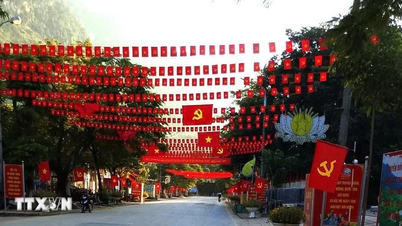



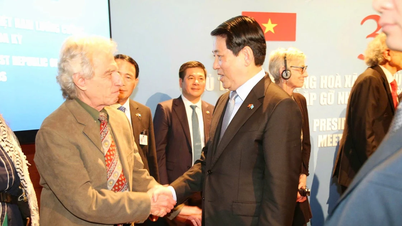


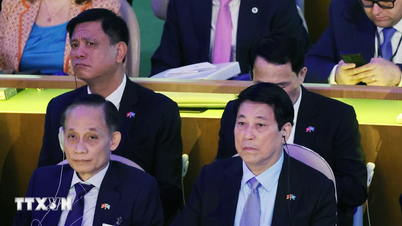










































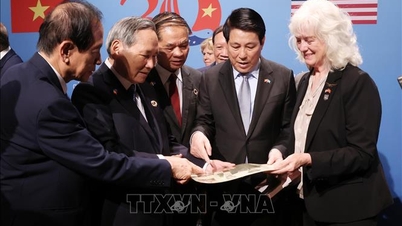







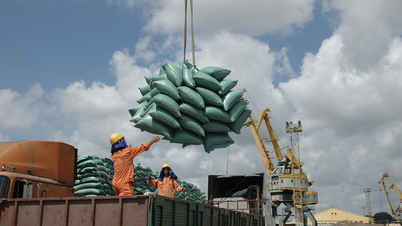









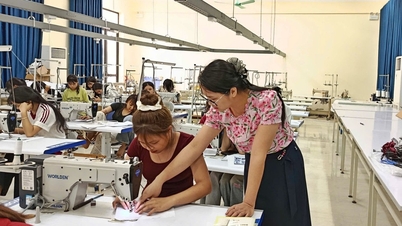




















Comment (0)